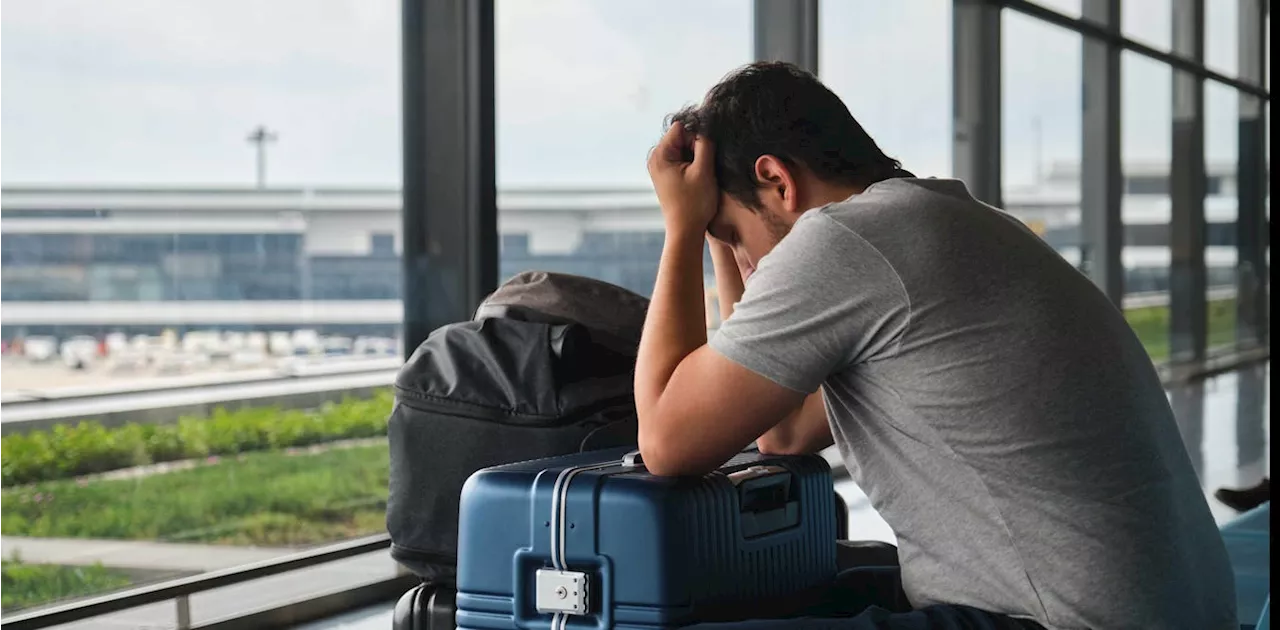This article explores the reasons behind the increase in air rage incidents, examining the psychological and social factors contributing to passenger frustration during air travel.
The holidays are coming, airports are packed and emotions are running high. You’ve probably seen it or even been part of it: that tense moment when a passenger snaps at a flight attendant, or a near-meltdown over a seat reclining too far. Why does flying seem to bring out the worst in us? Airplanes are, quite literally, a pressure cooker for emotions. For many, airports and airplanes are synonymous with anxiety, which often begins well before they step into the terminal.
These environments combine stress, discomfort and a loss of control, often leaving even the calmest travellers feeling on edge. Planes also make inequalities bleedingly obvious. We’ve all experienced the envy of walking through first-class cabins to reach economy. It’s easy to see why air rage has become so common. In fact, reported incidents have skyrocketed in recent years, exacerbated by pandemic-related anxieties. So, let’s have a look at the science behind why we get so cranky when we fly. But more importantly, what we can do about it. Air rage is getting worse In recent years, reports of unruly passenger behaviour around the world have surged. Perhaps the most comprehensive indicator is the data compiled by the United States’ Federal Aviation Administration, which show a clear connection to the pandemic effect. In 2021, the administration recorded 5,973 incidents of unruly passenger behaviour. This is a staggering 492% increase compared to the year before. To put this in perspective, the four-year average of such incidents for the period 2017–2020 was 901.75 (2017: 544, 2018: 889, 2019: 1,161, 2020: 1,009). While the numbers have decreased since their peak in 2021, they remain significantly higher than pre-pandemic levels. In 2022, the administration reported 2,455 incidents, followed by 2,076 in 2023, and 1,954 so far in 2024 (with final numbers for the year still pending
AIR RAGE AIR TRAVEL AIRPORT ANXIETY PASSENGER BEHAVIOR
Australia Latest News, Australia Headlines
Similar News:You can also read news stories similar to this one that we have collected from other news sources.
 The world needs science and science needs more womenFive scientists from Australia and New Zealand have been honoured at the L’Oréal-Unesco For Women in Science awards, shining a light on the critical contributions women make to science and the importance of gender diversity in driving change
The world needs science and science needs more womenFive scientists from Australia and New Zealand have been honoured at the L’Oréal-Unesco For Women in Science awards, shining a light on the critical contributions women make to science and the importance of gender diversity in driving change
Read more »
 Australia versus the world: How we rank on air quality — and the city lagging behindA new analysis has ranked the cities with the lowest air pollution around the world — but some experts contest the findings.
Australia versus the world: How we rank on air quality — and the city lagging behindA new analysis has ranked the cities with the lowest air pollution around the world — but some experts contest the findings.
Read more »
 Australian 14-Year-Olds' Maths Performance Remains Stagnant, Gender Gap WidensMore than a third of Australian 14-year-olds are failing to meet national maths standards, with girls falling further behind boys in both maths and science, according to the latest Trends in International Mathematics and Science Study (TIMSS). The data shows Victorian students lagging behind those in NSW, ACT, and Western Australia, and highlights a decline in year 8 girls' performance over time.
Australian 14-Year-Olds' Maths Performance Remains Stagnant, Gender Gap WidensMore than a third of Australian 14-year-olds are failing to meet national maths standards, with girls falling further behind boys in both maths and science, according to the latest Trends in International Mathematics and Science Study (TIMSS). The data shows Victorian students lagging behind those in NSW, ACT, and Western Australia, and highlights a decline in year 8 girls' performance over time.
Read more »
 Peter Dutton’s bid to politicise top science agency is ‘absurd’, former CSIRO energy director saysGlenn Platt tells Guardian Australia that the opposition leader had a ‘lazy’ response to report that undermines science
Peter Dutton’s bid to politicise top science agency is ‘absurd’, former CSIRO energy director saysGlenn Platt tells Guardian Australia that the opposition leader had a ‘lazy’ response to report that undermines science
Read more »
 The texting habit means you have higher emotional intelligence, according to scienceIf you love to use emojis, you’re going to heart this news.
The texting habit means you have higher emotional intelligence, according to scienceIf you love to use emojis, you’re going to heart this news.
Read more »
 Cosmic science, dystopian fiction, and other new booksOur reviewers cast their eyes over new fiction and non-fiction releases
Cosmic science, dystopian fiction, and other new booksOur reviewers cast their eyes over new fiction and non-fiction releases
Read more »
